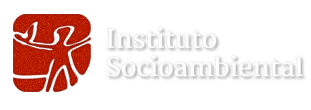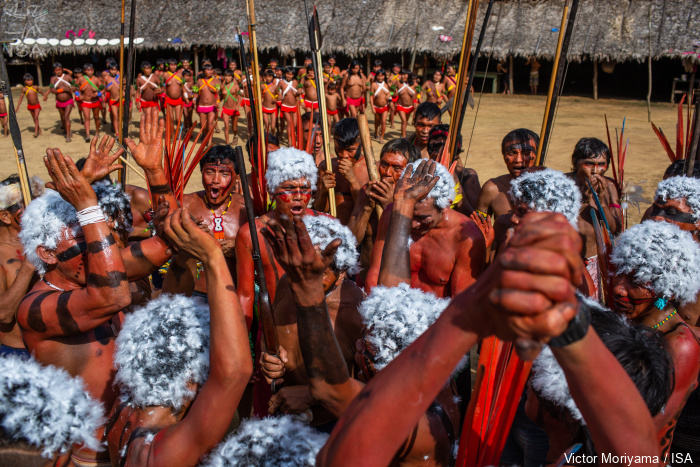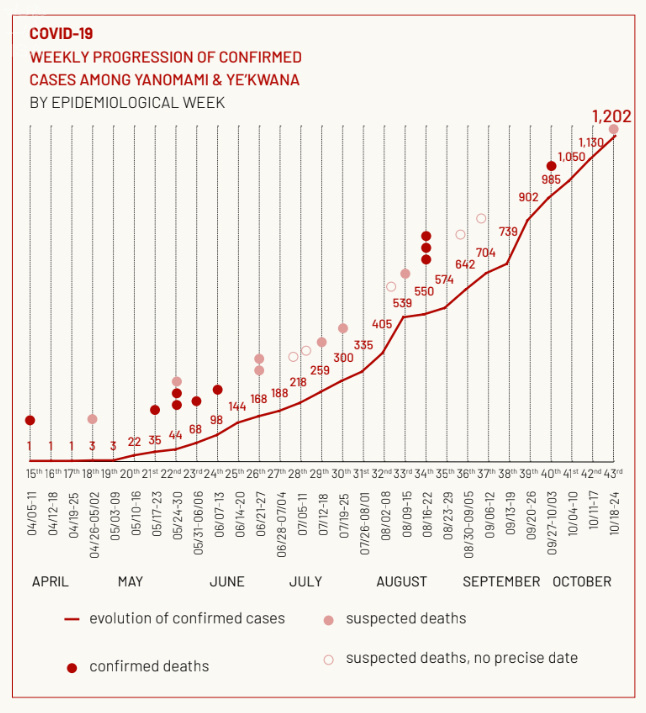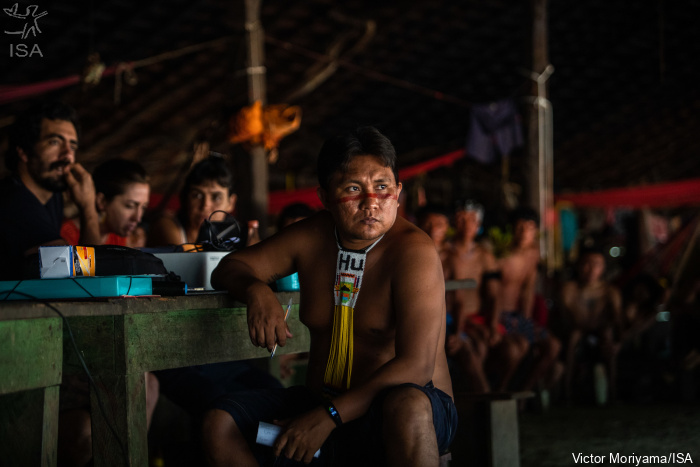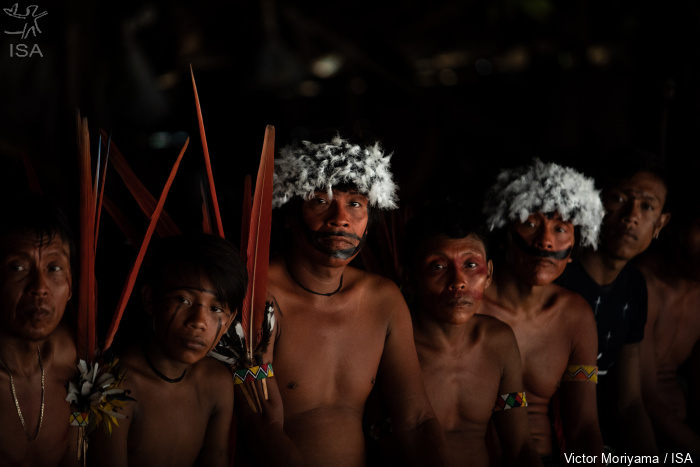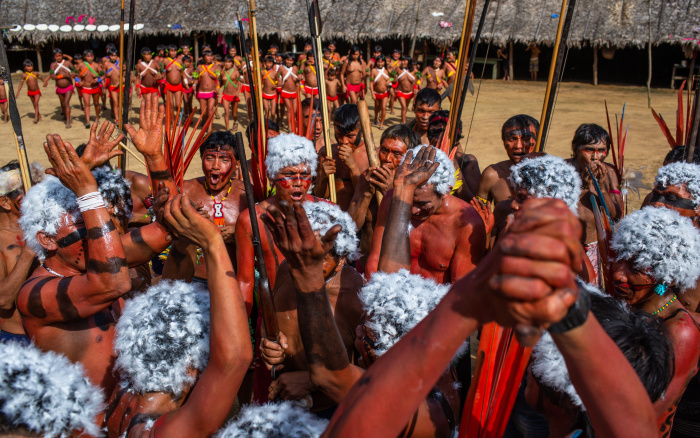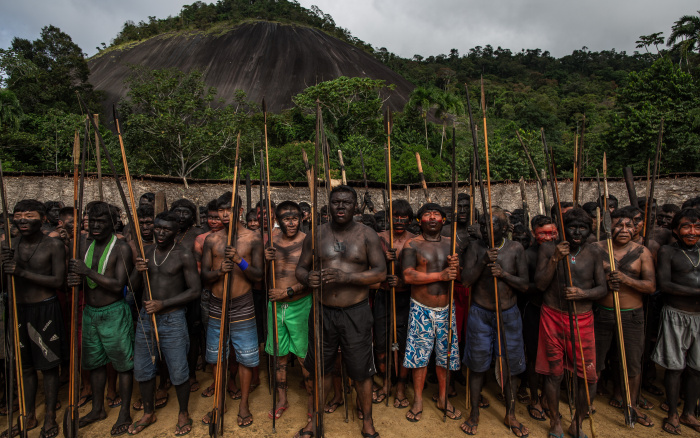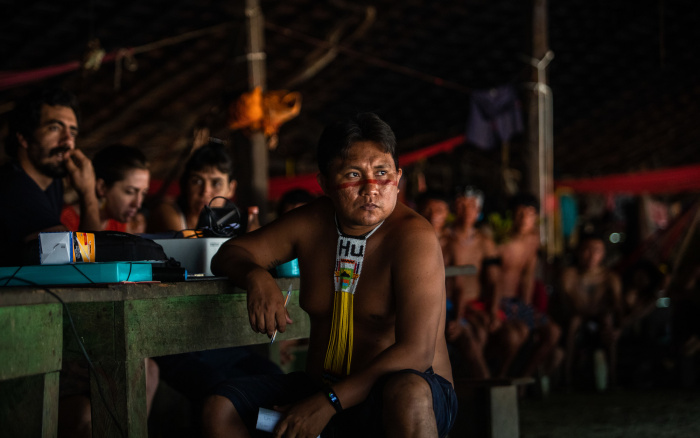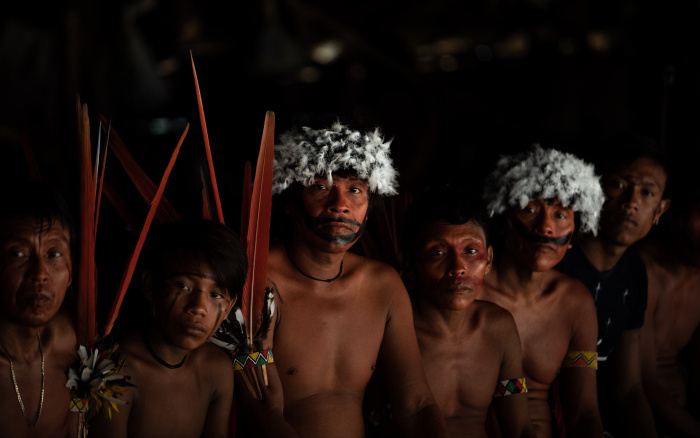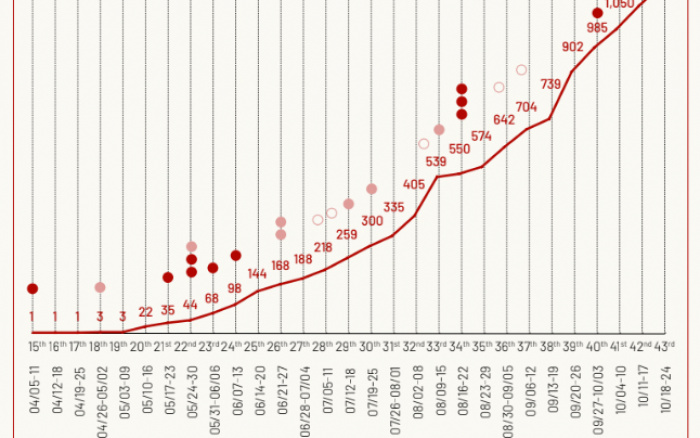Você está na versão anterior do website do ISA
Atenção
Essa é a versão antiga do site do ISA que ficou no ar até março de 2022. As informações institucionais aqui contidas podem estar desatualizadas. Acesse https://www.socioambiental.org para a versão atual.
A tragedy foretold: COVID-19 infections spike in Yanomami Territory
quinta-feira, 19 de Novembro de 2020 
Esta notícia está associada ao Programa:
Yanomami and Ye'kwana organizations and a network of researchers launch an unprecedented report that details the progress of the pandemic in the indigenous territory, suggesting that one in three Yanomami may have already been infected by the new coronavirus
“Inside, we're not doing well. We are all sick. Our forest got sick” - the testimony of a Yanomami from the Kayanau region, in Roraima, Brazil, speaking of a disaster foretold. Almost eight months after the first Yanomami COVID-19 death, the health situation in the Yanomami Territory is out of control. According to the new report “Xawara: tracing the deadly path of COVID-19 and government negligence in the Yanomami Territory”, launched this Thursday, November 19th and put together by the Pro-Yanomami and Ye'kwana Network and the Yanomami and Ye’kwana Leadership Forum, the number of confirmed cases in the territory jumped from 335 to 1,202 between August and October — an increase of more than 250% cases per month. According to monitoring conducted by the Pro-YY Network, at the end of October there were 23 suspected and confirmed deaths from COVID-19 among the Yanomami.
COVID-19 cases have been confirmed in 23 of the 37 regions of the Yanomami Territory, located between the states of Roraima and Amazonas and home to around 26,700 indigenous people, including isolated groups, who are even more vulnerable to disease.
The report demonstrates that 10,000 people, or more than a third of the total population, may have already been exposed to the virus. Since June, the Yanomami and Ye'kwana Leadership Forum has called for the removal of the thousands of illegal gold miners who work in the territory and are vectors of the disease. The new report shows that their initial fears were valid: illegal mining operations have been a clear source of COVID-19 infections in the territory. The #MinersOutCovidOut campaign started by the Yanomami and Ye’kwana, which has support from Brazilian and international allies, has gathered over 410,000 signatures in support of the Indigenous struggle.
Watch the "Shaman's message":
The Earth is alive, it cannot be owned. Can you finally see?"
The Earth is alive, it cannot be owned. Can you finally see?"
The release of these new numbers represents the latest chapter in a story of historic proportions, suggesting that the government of Brazil has allowed and at times encouraged activities that have exposed the Yanomami and Ye’kwana peoples to the ravages of a deadly disease, while crippling their ability to protect their ancestral lands from illegal gold miners that have stripped the forests and poisoned the rivers of the northern Amazon.
“Data from the Ministry of Health indicate that there are 11 regions of the TIY where less than 10 tests were performed by DSEI-Y [Yanomami Health District] and three others where no tests were performed, that is, in more than a third of the regions there is very little information on the arrival of COVID-19, reinforcing claims by Indigenous people that in reality the number of people infected could be much higher. This information also reveals that, through mid-September, 70.5% of the tests performed by the Yanomami Health District were positive. In the region of Demini, for example, one of the most tested in the territory, over 90% of the population was infected with COVID-19. The number of tests conducted by the Special Secretariat for Indigenous Health (SESAI) up to October 23 throughout the TIY is insignificant: 1,270 tests were positive, negative or discarded. In other words, less than 4.7% of the total population was tested”, according to the report.
For Maurício Ye’kwana, a director of the Hutukara Yanomami Association and spokesman for the campaign, the report is an instrument that sheds light on the government's neglect in the Yanomami Territory during the pandemic. He says that the investigation represents an important step “not only for the Yanomami and Ye'kwana, but for all Indigenous peoples who protect our Mother Earth and keep the forest standing” to be able to show government authorities the strength and unity of the Indigenous struggle in Brazil. “We have partners who support our struggle. We ask for urgent removal of the invaders from our land,” he said.
“We want to deliver this document to the Brazilian authorities. It’s an instrument to denounce the problems with the invasion of miners, the contamination of the environment including our rivers, and contamination from diseases, like this xawara [epidemic], which has been killing a lot of people”, added Dário Kopenawa Yanomami, Vice President of Hutukara.
Timeline of abuses
In addition to denouncing the current lack of control over the pandemic in the Yanomami Territory, the report presents in detail how it has advanced across the largest indigenous land in Brazil thanks to government negligence. One of the main excerpts of the document is a timeline of events that illustrate the neglect and the sequence of abuses against the Yanomami and Ye’kwana throughout this period.
One of the most dramatic episodes - which sparked outrage on social media in June - was the disappearance, for almost a month, of three children who died with suspected COVID-19. The babies were buried in a cemetery in the capital Boa Vista (RR) without the knowledge of their parents or representatives of the Yanomami. In their culture, burying the dead is unacceptable. Despite the revolt and protests, the remains of the babies remain buried in the capital of Roraima, thousands of kilometers away from their communities.
In July, a bit of government theater marked the advance of the pandemic in the Yanomami Territory, and is detailed in the report. Three months after the first death of a 15-year old Yanomami boy from COVID-19, the federal government took 16,000 chloroquine tablets to health posts in the territory on an Army-led mission, and gave another 33,000 tablets to the DSEI-Y. The authorities argued that the tablets were for treating malaria, not COVID-19, as previously stated by SESAI. The conflicting versions about the purpose of the massive distribution of chloroquine also showed the explosion of malaria in the territory, which had already been denounced by indigenous leaders as a direct impact of the gold mining invasion.
The new report also features reports from the Yanomami and Ye’kwana on the advance of COVID-19 in the territory. The testimonies narrate how the pandemic progressed, mainly due to gold mining. “Inside, we're not doing well. We are all sick. Our forest got sick. That’s the miner’s path, because many planes land there. When a plane arrives, many people get off it, and as many planes are coming, today this disease has arrived! It’s a strong disease!”, said a Yanomami woman from Kayanau, in July. Kayanau is the second largest illegal mining area in the territory.
Francisco Yanomami, from the Marauiá region, also warned about the lack of tests: “We weren't supposed to be dying of this, because of a strong disease, you know. […] Now it's happening, COVID-19 symptoms are increasing, it's increasing. What can we do? How do we know if it's really COVID-19? How can we find out if it’s from COVID-19 that we’re dying? We have to know which disease is killing us. If we don't have this test, we have no way of finding out if this disease is killing us!”.
The report also tells how the Yanomami Indigenous Health Center (CASAI-Y) in Boa Vista became the main contamination hub for COVID-19 among indigenous people in the first months of the pandemic. “We are not here fighting for nothing! You whites, who are inside the District, who work for health, because you have worsened the situation, you made us very sad! (...) Why are you only doing bad things for us?”, asked Gerson Blane, leader of Marakana / Toototopi at the time.
Finally, the report includes articles signed by experts: on the disrespect for Yanomami funerary rituals and culture, by the French anthropologist Bruce Albert; an x-ray of healthcare on Yanomami Territory, by public health doctor Paulo Basta, from the Oswaldo Cruz Foundation; and on the responsibility of the Brazilian State for the tragedy, by ISA lawyers Juliana Batista and Luiz Henrique Pecora.
Working side by side with the Yanomami since 1975, Bruce Albert finishes his analysis by drawing a parallel between the desecration of the Yanomami dead by COVID-19 and political disappearances during the Brazilian dictatorship - both expressions of “collective amnesia” and social erasure. And that has endured today. “In fact, taking possession of the dead of others to erase them from collective memory and denying the grieving of their family members has always been the mark of a supreme stage of barbarism based on the contempt and denial of the Other, ethnic and / or political” .
* The #MinersOutCovidOut campaign is an initiative of the Yanomami and Ye'kwana Leadership Forum and the Hutukara Yanomami Association (HAY), Wanasseduume Ye'kwana Association (SEDUUME), Yanomami Kumirayoma Womens Association (AMYK), Texoli Ninam State Association Roraima (TANER), Yanomami Association of Rio Cauaburis and Affluents (AYRCA), Kurikama Yanomami Association (AKY) and Hwenama Association of Yanomami Peoples of Roraima (HAPYR). The campaign has support from the Coalition of Indigenous Peoples of Brazil (APIB), Coordination of Indigenous Organizations of the Brazilian Amazon (COIAB), Instituto Socioambiental (ISA), Amazon Watch, Survival International, Greenpeace Brasil, Conectas Direitos Humanos, Amnesty International, Amazon Cooperation Network (RCA), Igarapé Institute, Rainforest Foundation US and Rainforest Foundation Norway.
Translation: Christine Halvorson
Marina Terra e Evilene Paixão
ISA
Imagens:
Arquivos:
| Anexo | Tamanho |
|---|---|
| 21.03 MB |

